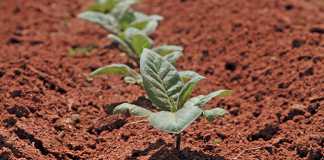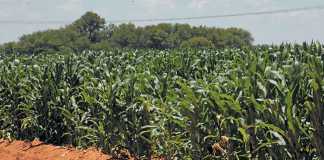Pine needles
Effective in a layer 20mm to 75mm thick.
Advantages:
Loose and light. Keeps water in while still allowing some evaporation. Binds the soil. Decomposes slowly.
Disadvantages:
Not readily available. Acidic. Settles and forms a mat. Although pine needles decompose slowly, their size means they don’t last very long.
Leaves/leaf mould
Effective in a layer 20mm to 100mm thick.
Advantages:
Lets some water in and improves soil water-carrying capacity. Binds the soil. Easily available. Easier to use when shredded.
Disadvantages:
Can be a fire hazard. Can form a mat and cause runoff. Dries and blows away. Difficult to use when unshredded.
Lawn clippings
Effective in a layer 20mm thick.
Advantages:
Easily available. Lets in some water and stays moist. Limits evaporation and is best used in small areas.
Disadvantages:
Forms a mat and heats the soil. Unpleasant smell. Must be spread in a thin layer. May contain weed seeds.
Straw
Effective in a layer 50mm to 120mm thick.
Advantages:
Allows water in easily. Cools the soil. Holds some water in the soil, but not as much as other mulches. Good for temporary cover over grass seeding.
Disadvantages:
Will blow and scatter. Forms a mat. Fire hazard. May contain weed seeds.
Compost
Effective in a layer 50mm to 100mm thick.
Advantages:
Easily available. Can be made from waste plant material found on site. Excellent way to add organic matter to the soil. Improves the soil’s water-carrying capacity for future use. Allows some water in and holds some itself.
Disadvantages:
Must be stored and aged on or near the site. Unsightly and bulky. Poor compost can have an unpleasant smell. Takes time to collect and make compost.
Straw manure
Effective in a layer 50mm to 100mm thick.
Advantages:
A low-level fertiliser. Improves soil water-carrying capacity. This multipurpose mulch can be incorporated into the soil.
Disadvantages:
Must first be aged or treated. Not readily available. Can have a bad smell. Source: Water Wise, by Rand Water.













